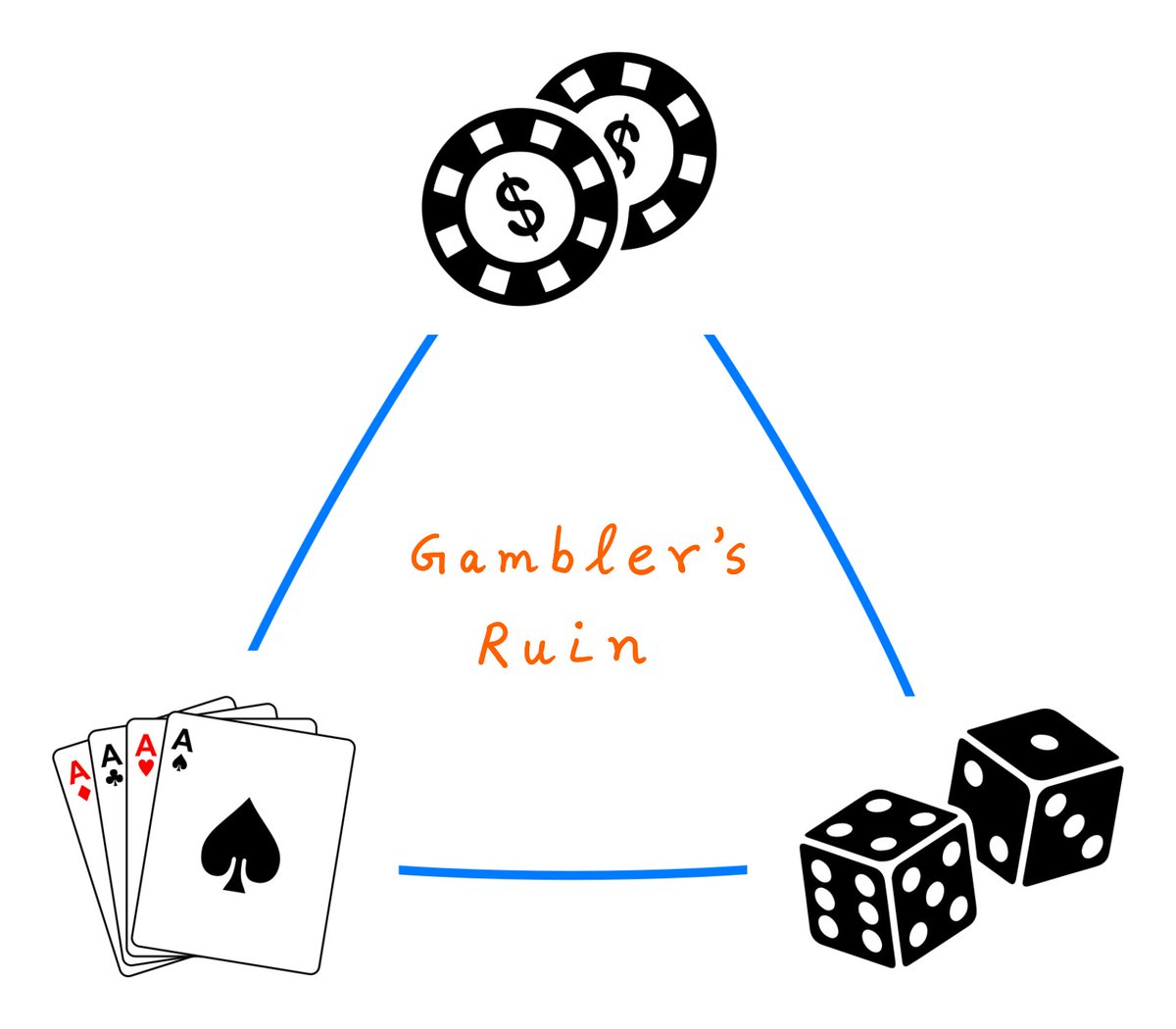1/
Ed Thorp (@EdwardOThorp) is a pioneer in the field of "how to recognize and take advantage of mis-priced bets".
This question has led Thorp to discover all kinds of fascinating and highly profitable strategies -- in Blackjack, Options Trading, Statistical Arbitrage, etc.
Ed Thorp (@EdwardOThorp) is a pioneer in the field of "how to recognize and take advantage of mis-priced bets".
This question has led Thorp to discover all kinds of fascinating and highly profitable strategies -- in Blackjack, Options Trading, Statistical Arbitrage, etc.
2/
In 2004 and 2005, Thorp published a 6-part article in Wilmott magazine.
In these parts, Thorp reminisced about his ventures into Statistical Arbitrage -- the science of profiting from the statistics of a large number of bets placed at once.
In 2004 and 2005, Thorp published a 6-part article in Wilmott magazine.
In these parts, Thorp reminisced about his ventures into Statistical Arbitrage -- the science of profiting from the statistics of a large number of bets placed at once.
3/
I found this article to be an absolute gold mine.
It contains a wealth of investing/trading wisdom, plus a bunch of interesting nuggets from Thorp's extraordinary career.
👇👇👇
I found this article to be an absolute gold mine.
It contains a wealth of investing/trading wisdom, plus a bunch of interesting nuggets from Thorp's extraordinary career.
👇👇👇
4/
Key insights/nuggets from Part 1:
- What does "market neutral" mean?
- How should we measure "risk-adjusted alpha"?
- Fundamentals of risk control via position sizing
- The importance of keeping transaction costs low

Key insights/nuggets from Part 1:
- What does "market neutral" mean?
- How should we measure "risk-adjusted alpha"?
- Fundamentals of risk control via position sizing
- The importance of keeping transaction costs low


5/
Key insights/nuggets from Part 2:
- What is "arbitrage"?
- Types of arbitrage: riskless vs risky
- The fundamentals of Statistical Arbitrage
- Are markets efficient?

Key insights/nuggets from Part 2:
- What is "arbitrage"?
- Types of arbitrage: riskless vs risky
- The fundamentals of Statistical Arbitrage
- Are markets efficient?


6/
Key insights/nuggets from Part 3:
- The importance of rigorous back-testing
- The fundamentals of Factor Analysis
- The founding of DE Shaw and Amazon

Key insights/nuggets from Part 3:
- The importance of rigorous back-testing
- The fundamentals of Factor Analysis
- The founding of DE Shaw and Amazon


7/
Key insights/nuggets from Part 4:
- Why size tends to be an anchor of returns
- The fascinating story of Thorp buying an oil tanker

Key insights/nuggets from Part 4:
- Why size tends to be an anchor of returns
- The fascinating story of Thorp buying an oil tanker


8/
Key insights/nuggets from Part 5:
- A precise definition of "haggling"
- Pros and cons of "haggling" while buying stocks
- Satisficers vs Maximizers: Good Enough vs The Best
- How Thorp got involved with Ken Griffin and Citadel

Key insights/nuggets from Part 5:
- A precise definition of "haggling"
- Pros and cons of "haggling" while buying stocks
- Satisficers vs Maximizers: Good Enough vs The Best
- How Thorp got involved with Ken Griffin and Citadel


9/
Key insights/nuggets from Part 6:
- Fund manager fees, alignment of incentives
- The importance of running a lean organization
- The marginal value of "Time" vs "Money"


Key insights/nuggets from Part 6:
- Fund manager fees, alignment of incentives
- The importance of running a lean organization
- The marginal value of "Time" vs "Money"



10/
If you want to learn more about Thorp, and about many other super-interesting characters who profited handsomely from asymmetric bets, I recommended the wonderful book "Fortune's Formula" by William Poundstone (@WPoundstone): amazon.com/Fortunes-Formu…
If you want to learn more about Thorp, and about many other super-interesting characters who profited handsomely from asymmetric bets, I recommended the wonderful book "Fortune's Formula" by William Poundstone (@WPoundstone): amazon.com/Fortunes-Formu…

11/
Thanks for reading. I hope you enjoyed this thread!
/End
Thanks for reading. I hope you enjoyed this thread!
/End
• • •
Missing some Tweet in this thread? You can try to
force a refresh











